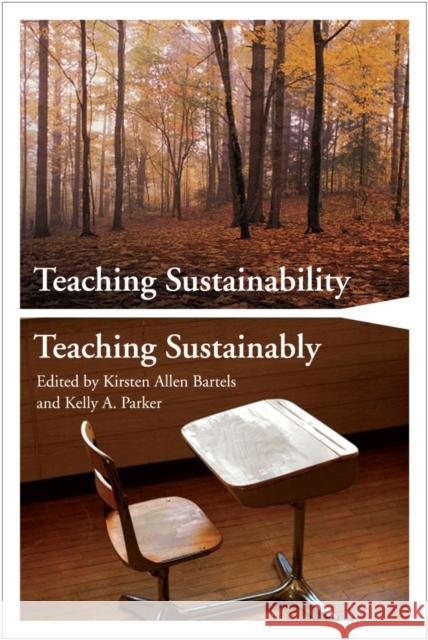Teaching Sustainability / Teaching Sustainably » książka
Teaching Sustainability / Teaching Sustainably
ISBN-13: 9781579227388 / Angielski / Twarda / 2011 / 296 str.
Over the coming decades, every academic discipline will have to respond to the paradigm of more sustainable life practices because students will be living in a world challenged by competition for resources and climate change, and will demand that every academic discipline demonstrate substantial and corresponding relevance.
This book takes as its point of departure that integrating a component of sustainability into a discipline-specific course arises from an educator asking a simple question: in the coming decades, as humanity faces unprecedented challenges, what can my discipline or area of research contribute toward a better understanding of these issues? The discipline need not be future-oriented: an archaeologist, for instance, could incorporate into a course some aspects of sustainable archaeological practices in areas threatened by rapid climate change, as well as examples of sustainable or unsustainable ways of living practiced by members of the long-gone society under investigation.
This book also argues that courses about sustainability need to cross disciplinary boundaries, both because of the inter-relatedness of the issues, and because students will require the ability to use interdisciplinary approaches to thrive through the multiple careers most of them will face.
The contributions to this book are presented under four sections. -Sustainability as a Core Value in Education- considers the rationale for incorporating sustainability in disciplinary courses. -Teaching Sustainability in the Academic Disciplines- presents eight examples of courses from disciplines as varied as agriculture, composition, engineering, and teacher education. -Education as a Sustainable Practice- reviews how the physical environment of the classroom and the delivery of instruction need themselves to reflect the values being taught. The final section addresses the issues of leadership and long-term institutional change needed to embed sustainable practice as a core value on campus.











